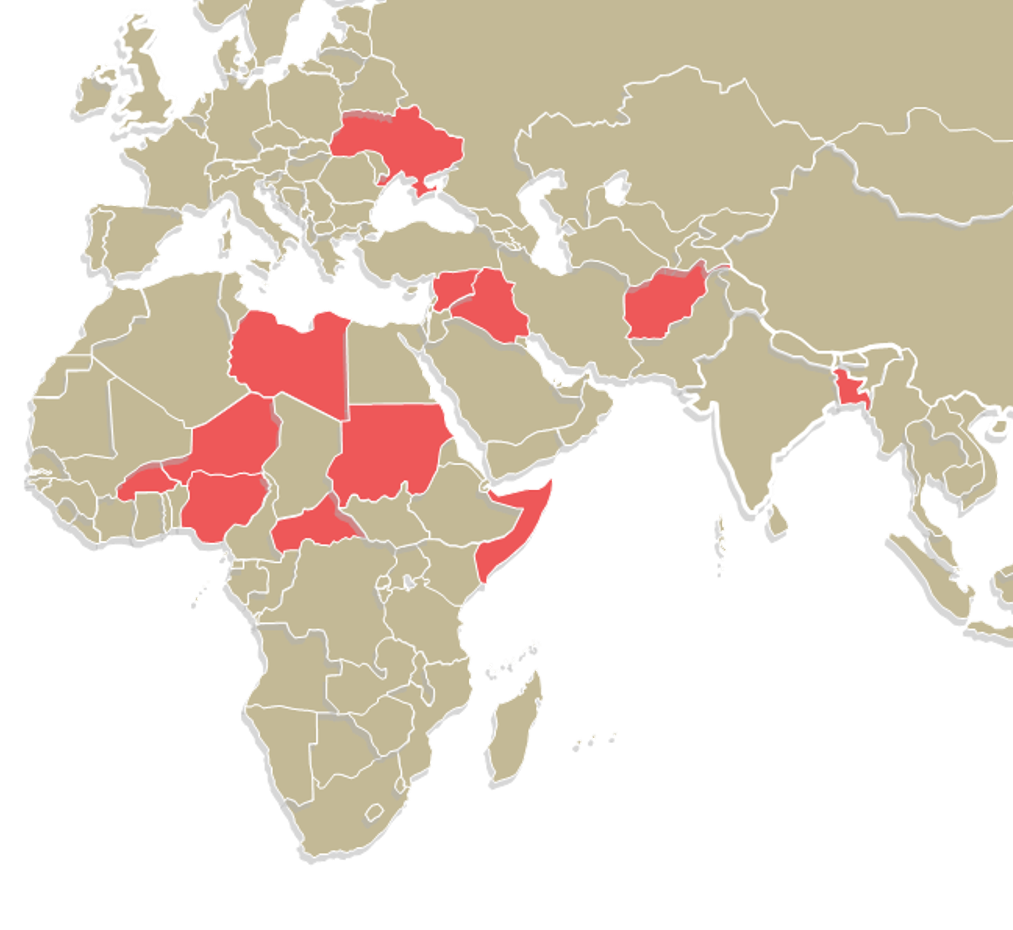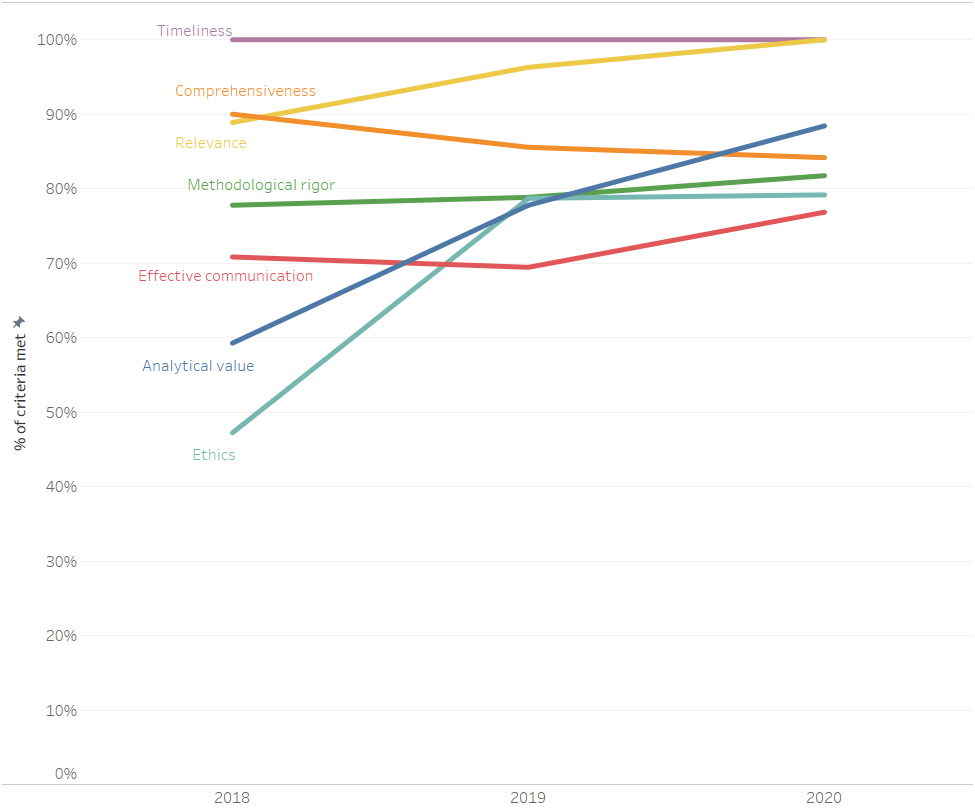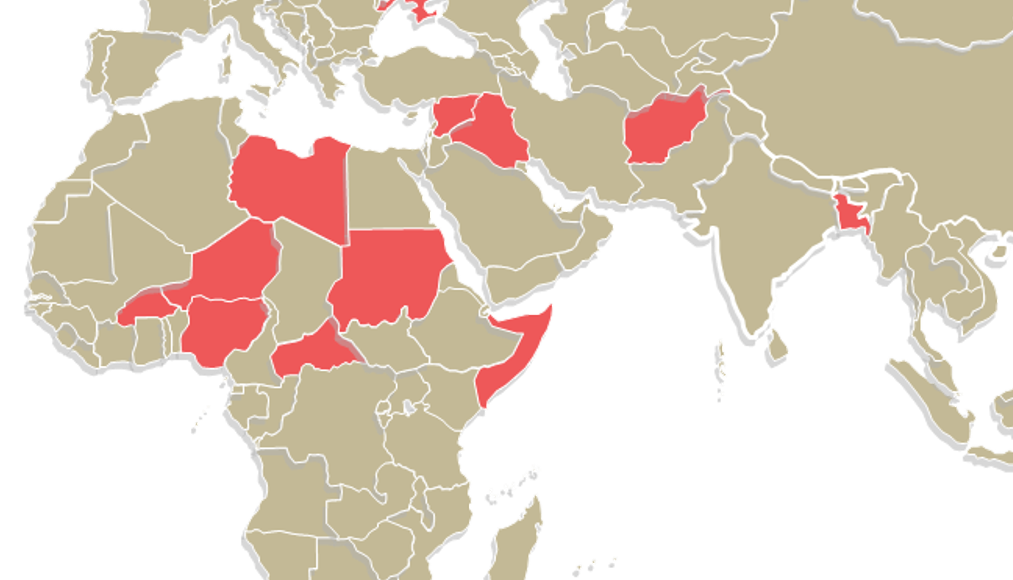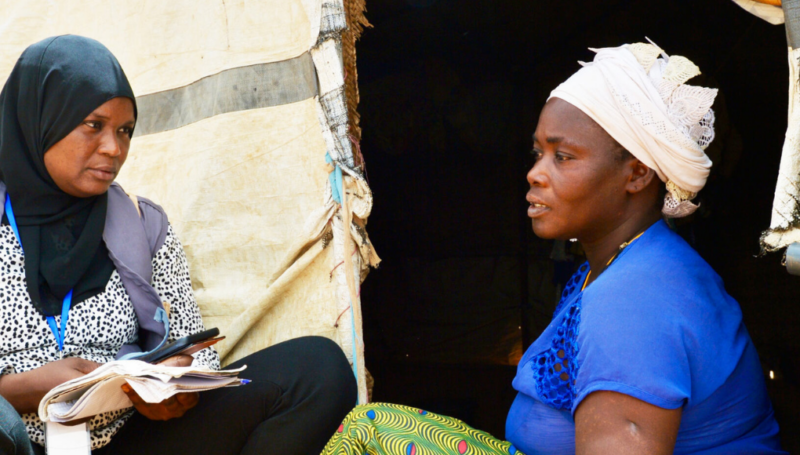The improvement of joint and impartial needs assessments has been a core priority of the humanitarian community, who has formalised this concern with a commitment to strive towards needs assessments that are impartial, unbiased, comprehensive, context-sensitive, timely and up-to-date. In order to promote efforts toward this goal, REACH has been working extensively to support the implementation of Multi-sectoral Needs Assessments (MSNAs) across different humanitarian crises, and to ensure that these crucial primary data collection exercises meet high quality standards.
The freshly published results of the MSNA 2020 independent review highlight a constant increase in the quality of MSNAs since 2018 (full independent review report available here). All 12 reviewed MSNAs score as “Best Practice” assessments, as per GPPi methodology, an important achievement to the credit of REACH teams and the over 130 national and international partners, including UN Agencies, International Organizations and NGOs, who supported and engaged in this highly collaborative effort in 2020.
REACH conducted its first three Multi-sectoral Needs Assessments (MSNAs) in 2016, in the wake of the World Humanitarian Summit and Grand Bargain commitments to shaping more targeted, prioritized, and effective humanitarian action. Since then, the number of MSNAs has quadrupled, in parallel with an increasing appetite, among humanitarian partners, for data that can support evidence-based planning at the crisis level. REACH is planning to conduct 18 MSNAs this year, following a significant scale-up compared to 2020, when 12 MSNAs were conducted (MSNA 2020 in Numbers Brief available here).

Figure 1. Countries of MSNA implementation, 2020
The increase in demand for crisis-level data can be witnessed as evidence-based decision making becomes a cornerstone of effective humanitarian action, and as MSNA data continues to inform and influence flagship humanitarian response processes. In 2020, results from MSNAs were used to inform the Humanitarian Needs Overview (HNO) and Humanitarian Response Plan (HRP) in all countries where these exercises were undertaken, to calculate sectoral People in Need (PiN) figures as well as to inform inter-sector analysis and severity rankings. MSNAs are in fact geared towards supporting the humanitarian programme cycle by addressing key information gaps, and serve as complementary or main primary data sources on humanitarian conditions of affected populations.
Despite the significant and steady scale-up of MSNA exercises, and despite the challenges posed by the Coronavirus-2019 pandemic in 2020, REACH teams did not compromise on quality. Quality criteria for coordinated needs assessments, including for MSNAs have been embedded in an enhanced Humanitarian Programme Cycle (HPC) in 2018; since then, MSNAs have been submitted for yearly independent reviews that help monitor progress towards meeting the established quality standards.

Figure 2. MSNA score evolution over time, by pillar (as per GPPi methodology)
In the meantime, REACH is also capitalising on the number and quality of MSNA exercises to construct, test and refine reliable methodologies that can be applied to compare levels of household-level needs across different humanitarian crises. This is part of a continued effort to further support the achievement of Grand Bargain commitments, and to enable a more informed prioritisation of available resources at the global level.
Appetite for multi sectoral needs assessment has been growing in recent years, after the Grand Bargain agreements and the impetus to find solutions to provide humanitarian actors with granular information on the actual needs and vulnerabilities of crisis-affected populations, to better guide their decision-making. So far, evidence from the quality scoring of the 2020 HNOs and the 2021 HNOs, and of 2020 MSNAs, suggests that progress has been made towards producing quality analysis of humanitarian needs. In 2021, REACH will continue to scale-up its MSNA exercises to feed high quality data into HNOs and HRPs and enable well-informed decisions regarding humanitarian prioritisation and response.









